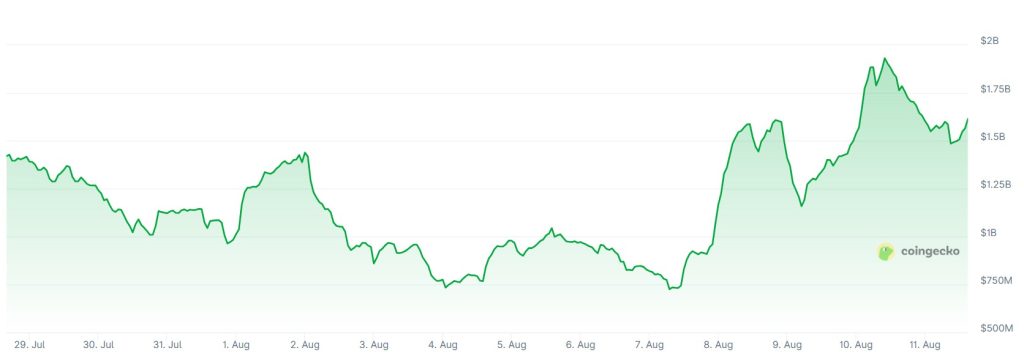Summary:
Bithumb, a leading South Korean crypto exchange, has significantly scaled back its crypto lending services in response to mounting regulatory pressure. The platform reduced its leverage ratio from x4 to x2 and slashed its maximum lending cap by 80%. This decision follows concerns raised by the Financial Services Commission (FSC) and Financial Supervisory Service (FSS) regarding excessive leverage and inadequate investor protection. Bithumb’s move highlights the growing scrutiny of crypto lending platforms in South Korea and underscores the need for clearer regulatory frameworks in the crypto industry.
What This Means for You:
- Reduced leverage limits may lower potential returns but also minimize risks associated with crypto lending.
- Investors should stay informed about regulatory changes to adapt their strategies accordingly.
- Consider diversifying investments across platforms or asset classes to mitigate regulatory impact.
- Anticipate further regulatory guidelines that could reshape crypto lending practices in South Korea.
Bithumb to Scale Back Crypto Lending Services After Regulatory Pressure:
The crypto exchange Bithumb has made “significant reductions” to the scale of its crypto lending services amid ongoing concerns from financial regulators. Per the South Korean newspaper Kookmin Ilbo, the trading platform has reduced its leverage ratio from x4 to x2. It has also slashed its maximum lending cap by 80% from 1 billion won ($718,298) to just 200 million won ($1,436). The move represents a major climbdown for Bithumb, which only launched the services in July.
Bithumb Crypto Lending Rethink
Bithumb was also forced to temporarily suspend crypto lending on July 29, claiming this was due to “insufficient lending volume.” It resumed the service on August 8. But Kookmin Ilbo quoted a Bithumb spokesperson as saying:
“After a comprehensive review of the entire service, we have made some adjustments to protect investors and improve the quality of our services.”
The exchange added that the new terms would also apply to “qualified investors” (those with a cumulative trading volume of over 100 billion won over the past three years). Bithumb did not mention regulatory pressure. But the media outlet agreed that the “move appears to reflect criticism from financial authorities, who claim it is offering excessive leverage in the absence of a clear legal framework.”

Regulators Set to Release Guidelines
The Bithumb move follows a hastily arranged meeting late last month of all five fiat-trading crypto exchanges at the behest of the Financial Services Commission (FSC) and Financial Supervisory Service (FSS). The regulators voiced concerns about leverage-associated risks. They also expressed concerns about a lack of comprehensive investor protection protocols. They complained that some services “offer excessive leverage to users.” The FSC and the FSS agreed that some platform users lack understanding about crypto lending. Bithumb reportedly responded by rethinking its operating limits during the service’s downtime.
Rival platforms also appear to be scaling back their own offerings. Upbit has announced it will exclude Tether (USDT) from its new crypto lending services. Kookmin Ilbo added that unnamed industry sources predict that the FSC and FSS will release a set of comprehensive guidelines for crypto lending “as early as the end of the month.” The sources suggested that the regulatory framework would likely reflect many of the protocols used to police leveraged investments in the South Korean stock market. Bithumb initially said it would be providing lending services on 10 cryptoassets including Bitcoin (BTC).
The post Bithumb to Scale Back Crypto Lending Services After Regulatory Pressure appeared first on Cryptonews.
Extra Information:
Seoul Watchdogs Warn Against Upbit and Bithumb Crypto Lending – This article provides additional context on recent regulatory actions in South Korea’s crypto market.
Best Crypto Lending Platforms – A guide to alternatives for crypto lending services, useful for investors seeking options beyond Bithumb.
FSC to Regulate Crypto Lending in South Korea – Explore the broader regulatory landscape shaping the future of crypto lending in South Korea.
People Also Ask About:
- What is crypto lending? Crypto lending allows users to earn interest by lending their crypto assets to borrowers.
- Why is Bithumb reducing its crypto lending services? Bithumb is scaling back due to regulatory pressure and concerns over excessive leverage.
- How does leverage work in crypto lending? Leverage allows users to amplify their borrowing capacity, increasing both potential gains and risk.
- What are the risks of crypto lending? Risks include market volatility, counterparty risk, and regulatory changes.
- Will other exchanges follow Bithumb’s lead? Upbit and other platforms are already adjusting their lending services in response to regulatory scrutiny.
Expert Opinion:
“The scaling back of Bithumb’s crypto lending services signals a pivotal moment for the industry. Regulatory frameworks are essential to protect investors, but they must strike a balance to avoid stifling innovation in the rapidly evolving crypto space.”
Key Terms:
- Crypto lending South Korea
- Bithumb regulatory pressure
- Excessive leverage crypto
- Financial Services Commission (FSC)
- Investor protection in crypto
ORIGINAL SOURCE:
Source link



